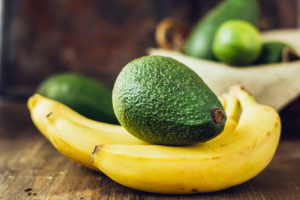 Remember when eating was all about filling your mouth with delicious flavors? What a great time that was. And it still can be, it just takes a little work.
Remember when eating was all about filling your mouth with delicious flavors? What a great time that was. And it still can be, it just takes a little work.
Food takes on a different role with age. Instead of being all about taste, it also needs to be about health. When you’re 50+, food choice is more about preventing disease and promoting a healthy body and mind.
Advertisement
For some, it may require some big changes. Your taste buds have been developed over the years and you’ve surely acquired a series of likes and dislikes. Unfortunately, the best way to get passed this is repetition and changing the way you look at food.
As you get older, your metabolism slows. Fuel sources are used less efficiently and it can result in weight gain and inflammation. It can also boost your risk for several conditions.
Age also makes it harder to break down and absorb nutrients at the same rate, boosting the risk for nutrient deficiencies.
So, what are the nutrients you should be focusing on as you age? There are a bunch, but here are few of the tops:
- Fibrous foods: Your digestive system slows with age. Further, blood pressure and cholesterol tend to go up. Fiber can help with all of these issues. Getting a good mix of high-fiber foods like berries, oats, lentils, etc. can help optimize digestion, cholesterol, and blood pressure.
- B12-rich foods: Vitamin B12 absorption drops with age. Stomach acidity decreases with age, making it harder to extract this essential vitamin. If you take an antacid to calm acid reflux, you could be at even greater risk for deficiency.
You need adequate B12 to maintain a healthy and functional nervous system, as well as preventing anemia. Sources include animal products and fortified foods like cereal.
- Spices: Taste buds can also diminish with age, so looking to spices and seasonings can help booth flavors and health. Turmeric is one spice—common in curries—that is associated with lower inflammation, less joint pain, and improved immune function.
Cinnamon is another spice that may have benefits for people 50+. Aside from being a known anti-inflammatory and anti-bacterial agent, it can also help control blood sugar.
Advertisement
Turmeric and cinnamon can be added to several recipes, while also being available in supplement form.
- Potassium-rich foods: Higher potassium intake is associated with reduced risks for heart attack and stroke. It is also associated with lower blood pressure, yet many people don’t get enough of it.
Food sources include potato, banana, avocado, and pistachios.
You can still make delicious meals and snacks when adopting a more mature relationship with food. Look at food choices as a way to keep you healthy long-term, rather than just fleeting satisfaction.
